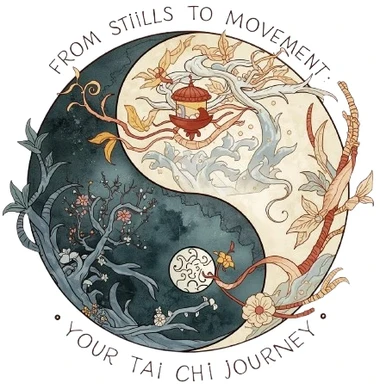Profile: SunnyPeak42
- 2
Fascinating read. Your meticulous record-keeping and self-awareness are impressive for a self-taught practitioner. I'm particularly interested in your point about Zhan Zhuang being more efficient for Qi cultivation for certain body types. This aligns with some traditional teachings that prioritize "standing as the foundation" before movement.
I have a couple of questions if you don't mind:
Regarding the shoulder joint soreness you mentioned: This is common, but "normal" doesn't mean it shouldn't be addressed. It could be a structural alignment issue. Have you experimented with subtly adjusting the height of your arms or the width of your embrace to see if it relieves the tension without losing the "holding the ball" structure?
You mention watching TV during half your practice. While I understand it helps pass the time, have you tried sessions in complete silence? I've found that even 15 minutes of fully mindful standing, focusing solely on the body's sensations and breath, can be more productive than an hour with distraction.
Your journey is a powerful testament to self-discipline. Well done.
Have you ever wondered why some people reach their 90s and beyond with vibrant energy, a clear mind, and a steady gait, while others face a cascade of health issues in their 40s and 50s? Is it simply genetics, or is there a conscious force at work?
The truth is, those who join the "90+ club" often made pivotal changes in midlife. By their 40s, they had quietly begun to let go of certain habits, building a formidable wall against accelerated aging, one wise choice at a time.
Based on observations and shared wisdom from long-lived elders, here are the 4 things they consistently stopped doing:
1. They Let Go of Meaningless Socializing.
During family gatherings, you often meet elders of "high status," yet many are burdened with high blood pressure, or are recovering from major surgeries, their livers already damaged. While socially accomplished, they are often "victims" on the path to longevity, their bodies depleted by constant social banquets and a life of hollow glamour.
The truly long-lived learned the art of subtraction early. A 92-year-old gentleman, Mr. Zhang, shared: "After a major illness at 40, I suddenly understood that true peace isn't found in a crowd, but in a quiet heart." This echoes the ancient Taoist Classic of Clarity and Stillness: "If a person can achieve constant clarity and stillness, Heaven and Earth will return to them entirely." These elders reduce无效社交 (wúxiào shèjiāo—ineffective socializing), turning instead to practices like Zhan Zhuang, reading, calligraphy, and quality time with family to nourish their inner world and return to nature's rhythm.
2. They Embraced the Vitality of "70% Full."
The old saying "illness enters through the mouth" holds profound truth. The 141-year-old Tang Dynasty "King of Medicine" Sun Simiao and the centenarians of China's Longevity Village, Bama, all adhered to the principle of "do not eat to fullness"—stopping at 70% full. Their diets are centered on whole grains and vegetables, with minimal processed foods, aligning perfectly with the Yellow Emperor's Inner Canon: "When one overeats, the stomach and intestines are injured."
A 95-year-old lady explained: "When I was young, I loved strong flavors too. But after 40, I learned to use my tongue to savor the original flavor of food itself. This is what the Tao Te Ching means by 'finding beauty in your food.'" After middle age, our metabolism slows, and we are surrounded by "technology and harsh additives." Eating with restraint isn't self-deprivation; it's lightening the load for your body.
3. They Found Longevity in Contentment.
"Those who greedily chase wealth labor their hearts; those who labor their hearts shorten their lives." The ancient strategist Fan Li, a renowned business sage, amassed and then gave away vast fortunes three times in his life, eventually retiring in seclusion. In an era when the average lifespan was 30-40 years, he lived to 88.
Modern psychology shows that excessive material desire can trigger chronic anxiety, raising inflammation levels and accelerating cardiovascular aging. Taoism advocates "having few desires and being content." Many of history's wealthiest individuals met unhappy ends because they could never let go of their riches. What you own, ends up owning you.
4. They Made Wise Trade-Offs for Health.
Frugality is a virtue, but excessive frugality can be a health hazard. We've all seen news reports of people hospitalized from eating spoiled leftovers.
This kind of thrift is unwise. True health preservation wisdom lies in knowing what to discard and what to embrace: Discard spoiled food and outdated possessions; embrace clean eating and comfortable living. Discard the money earned by blindly staying up late to work; embrace a regular sleep schedule and a healthy body.
The Taoist Blueprint for Longevity
History is filled with Taoist masters who achieved remarkable longevity through these principles, dying of old age without disease. The modern Taoist master
